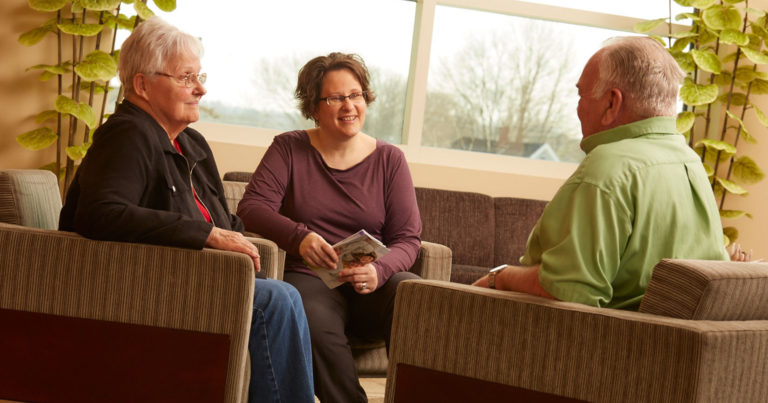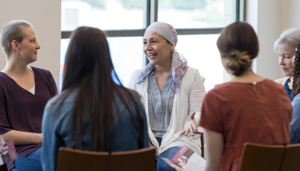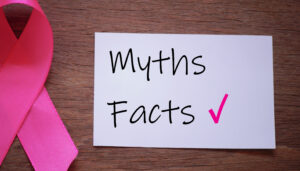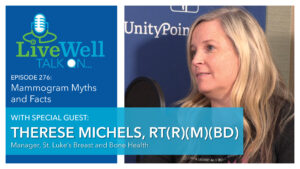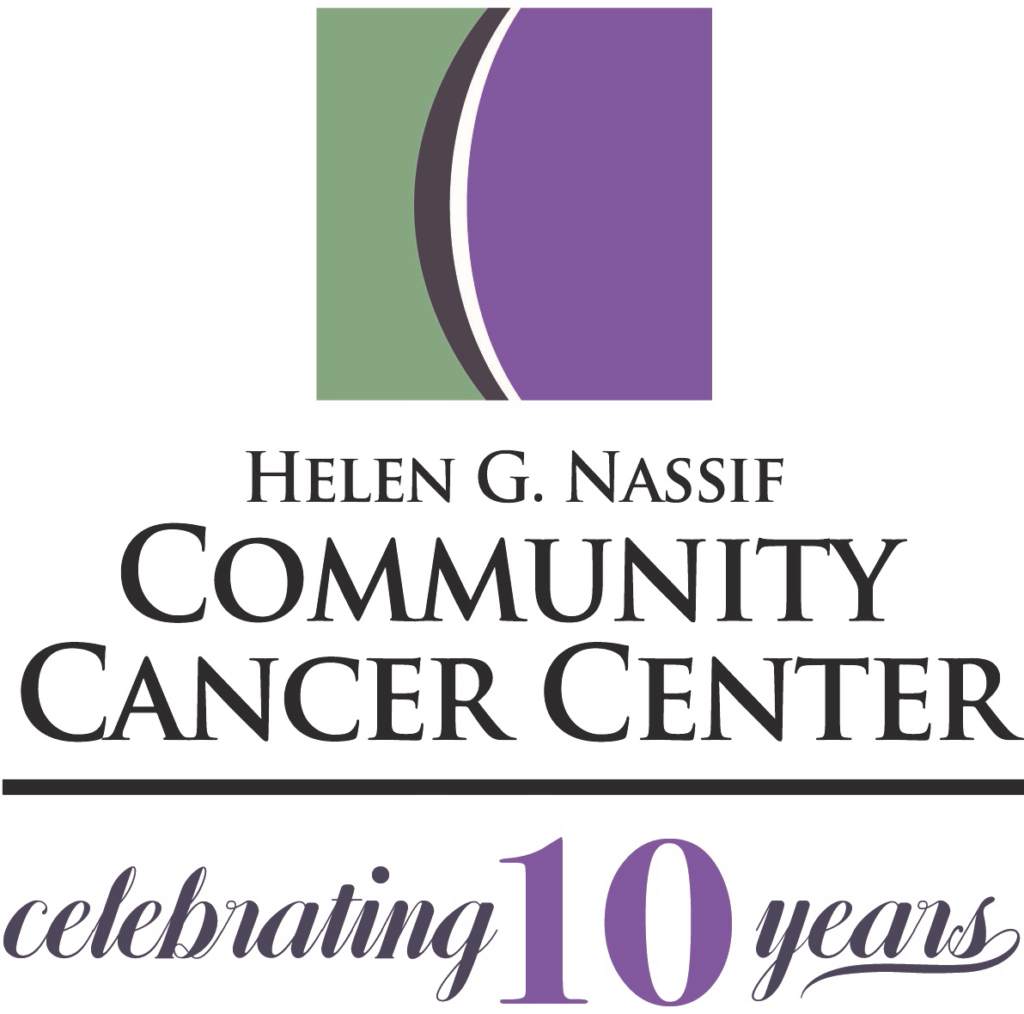
As part of our celebration of 10 years of the Nassif Community Cancer Center, our team members will give an inside look into the services available to our patients and how they can help them along the cancer journey.
Next up is Oncology Social Worker Nancy Yeisley, MSW, LISW, OSW-C, sharing more about the role of oncology social workers on a cancer patient’s care team.
What Does an Oncology Social Worker Do?
Oncology social workers meet with every patient when they are referred to a medical oncologist or radiation oncologist. We provide extra support for patients and their families in a way that helps the doctors and the care team take even better care of patients by ensuring we are not only taking good care of them medically – but also meeting their needs as people. When patients are diagnosed with cancer, they face a lot of unknowns and a lot of changes in their lives.
As oncology social workers we help them manage those changes and the full realm of emotions that go along with it. We meet the patient where they are at and walk alongside them from diagnosis through treatment and beyond. Our role really fits with the model of patient-family centered care.
What are Some of the Unique Needs Cancer Patients have that Oncology Social Workers Help With?
The range of needs a cancer patient has can be quite large depending on their unique situation, so this is not a comprehensive list, but common things we help cancer patients with include:
- Emotional support/supportive counseling. We’re always there to provide a listening ear.
- How do I tell my family about cancer? We especially spend a lot of time providing education and support on how to talk to children about cancer – whether this is the patient’s children or grandchildren. Our Family Care Program specifically provides extra support and services for patients with children in the home.
- Education and assistance with work-related issues such as how to navigate through getting time off work, including using FMLA, short-term disability, long-term disability, Social Security Disability, etc. This also includes how to communicate with your employer, how to anticipate your needs and overall what to expect with needing time off.
- Support for family, including in their role as caregiver. We have a strong focus on caregiver support at the Community Cancer Center and this primarily comes from the oncology social workers.
- Advance care planning. This can include helping them complete advance directives such as a living will and/or medical power of attorney, as well as having those bigger conversations about goals of care and end-of-life decision-making. We work closely with the physician and the Palliative Care team to provide the specific support that patients with advanced cancer need.
- Education and support related to insurance. We help the patient understand insurance terms and how to navigate the insurance world and medical billing. Plus the financial worry that comes from facing a major medical issue.
- Assistance with financial needs. This includes dealing with medical bills and for a lot of patients it includes a decrease in income. Not everybody has paid time off of work or has enough paid time off to cover all of their needs related to cancer treatment. Sometimes a patient’s family caregiver is also taking unpaid time off work to take care of them and this also impacts the household income. We use our knowledge of financial assistance programs to help meet their needs to fill in the financial gaps they are experiencing.
Hear From Our Experts
Cancer & Self-Care
PODCAST EPISODE: 91
Dr. Arnold to discuss the importance of self-care for patients and caregivers when dealing with a cancer diagnosis and the resources provided at the Community Cancer Center.
How Has Your Role Grown at the Helen G. Nassif Community Cancer Center Over the Last 10 Years?
The two biggest areas we have seen expand are the patient needs for emotional support and the increase in financial needs as the cost of care has increased. We saw these needs increasing prior to the pandemic, but since the pandemic they have increased even more significantly.
Overall, even before being diagnosed with cancer, people are experiencing more financial issues and have been much more isolated since the pandemic began. This has increased the acuity of our patient’s psychosocial needs for which they see us as oncology social workers.
How Do You See Your Role Advancing in the Next 10 Years?
We are always looking for ways to expand our programs at the Community Cancer Center to better meet the needs of our patients and families. This includes the ways we are looking at improving and/or expanding ways to meet these increasing financial and emotional support needs.
What is Your Favorite Thing About Being an Oncology Social Worker?
People ask me, “How do you do what you do?” meaning working in oncology. My answer includes that I see my job, our job at the Community Cancer Center, as providing people with the best care possible while also trying to take a difficult time/situation in their life and make it even just a little better than it would have been if we were not there to walk beside them through it.
I get to meet a lot of really great people and I get the opportunity to help them through a difficult time in their lives. I learn a lot from my patients. They teach me a lot about resilience, inner-strength and the love I see in the family and friends supporting them.
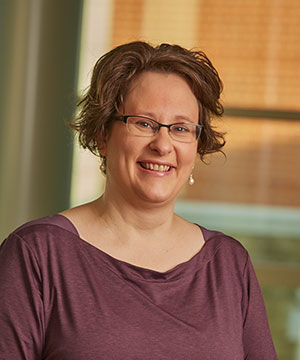
Nancy Yeisley
MSW, LISW, OSW-C
Nancy has been an oncology social worker with the Community Cancer Center since June 2011. Nancy is one of only four social workers in the state of Iowa to hold the Oncology Social Worker – Certified (OSW-C) credential.




